

All nine Beethoven/Liszt symphony transcriptions are difficult to play. The most difficult one? That’s hard to say, although experts in the field waver between the
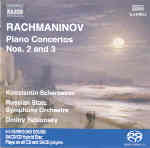
Scherbakov and Yablonsky collaborate on a very good account of the Second Piano Concerto. The opening piano solo has the right chiming-bell quality, and both

Liszt’s Beethoven symphony transcriptions for piano solo demand the utmost in technique, stamina, and musicianship–perhaps in the Ninth most of all, where the soloist must
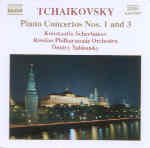
Despite a sonic soundstage that places the orchestra and soloist in a position akin to viewing celestial beings from the wrong end of a telescope,
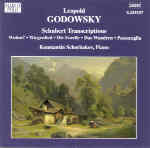
Volume 6 of Marco Polo’s Leopold Godowsky cycle focuses on Schubert, or rather Godowsky’s rewriting Schubert to suit his pianocentric agenda. Liszt’s transcriptions of Schubert
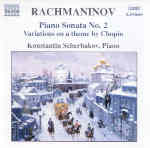
Rachmaninov’s Chopin Variations finds Konstantin Scherbakov operating at the top of his estimable form. The pianist never flags in the face of the music’s orchestrally

Volume 19 in Naxos’ series devoted to Liszt’s complete piano music brings Konstantin Scherbakov’s Beethoven/Liszt Symphony cycle two-thirds of the way toward completion, with only
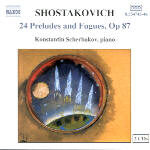
Konstantin Scherbakov’s 24 Shostakovich Preludes and Fugues leapfrog to the head of a small yet distinguished class on disc, whose valedictorians include Tatiana Nikolaeva and
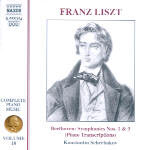
Konstantin Scherbakov follows his earlier release in Naxos’ complete Liszt piano music cycle with two more Beethoven symphonies “de-orchestrated” in Liszt’s inimitably ingenuous fashion. At
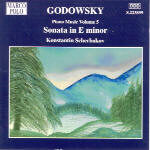
In the realm of miniatures and transcriptions, Leopold Godowsky’s genius for concocting elaborate and fustian piano textures truly flowered, much as a brilliant interior decorator
![]()
